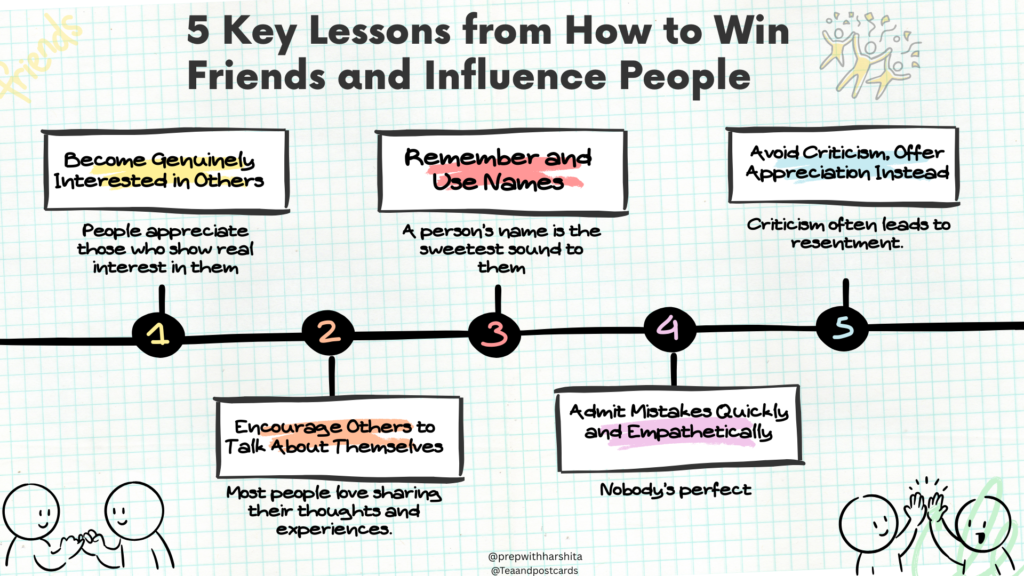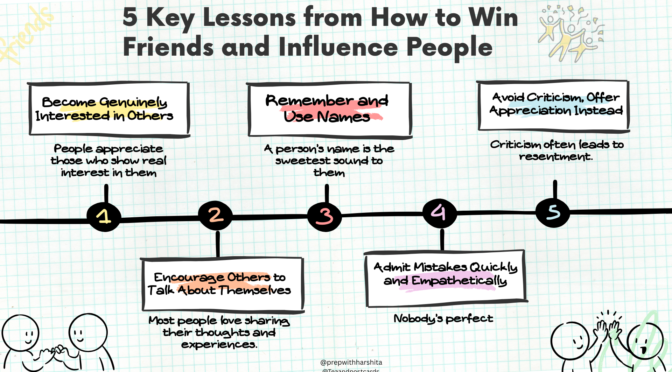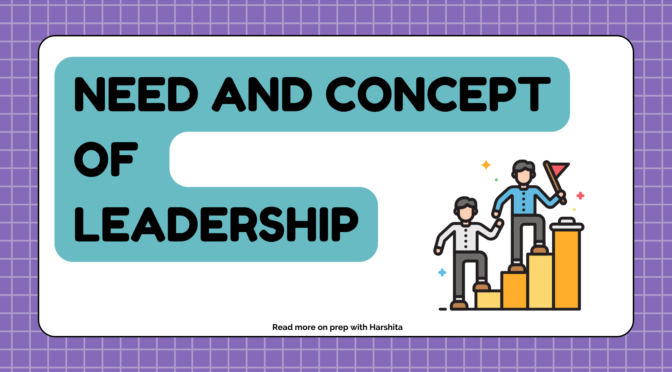Dale Carnegie’s timeless classic, How to Win Friends and Influence People, remains one of the most influential books on human relations. Whether you’re looking to improve your personal connections or professional networking, Carnegie’s principles still hold immense value. Here are five key takeaways to help you win friends and influence people in your daily life.
1. Become Genuinely Interested in Others
People appreciate those who show real interest in them. Instead of focusing on yourself, ask questions, listen actively, and engage in meaningful conversations. Carnegie believed that winning friends and influencing people starts with sincerity—people can sense when you genuinely care.
2. Remember and Use Names
A person’s name is the sweetest sound to them. Make an effort to remember and use names in conversations. This small gesture makes others feel valued and strengthens your connection with them.
3. Avoid Criticism, Offer Appreciation Instead
Criticism often leads to resentment. Carnegie emphasized praising others and acknowledging their efforts. Positive reinforcement encourages better behavior than fault-finding. If you want to win friends and influence people, focus on appreciation.
Also Visit : Pinterest
4. Encourage Others to Talk About Themselves
Most people love sharing their thoughts and experiences. By letting others lead the conversation, you make them feel important. This simple habit helps build rapport and trust.
5. Admit Mistakes Quickly and Empathetically
Nobody’s perfect—owning up to errors disarms conflict and earns respect. When you acknowledge mistakes with humility, people are more likely to forgive and trust you.
Applying these principles from How to Win Friends and Influence People can transform your relationships. Whether in business or personal life, mastering these skills helps you win friends and influence people effectively.
Also read : 10 self help book that will change your life




